Year-end is fast approaching. If you are considering selling your business anytime in the next 2-3 years, it’s time to reconsider how you manage your end-of-year business income and spending. For good or bad, year-end tax planning for business owners can have a significant impact on the selling price and net proceeds of a future sale — even if that’s 2-3 years down the road.
Typically, business owners seek to minimize their tax liability by following the well-worn (and totally legal) path of prepaying January’s bills in December while delaying December revenues to January. However, this approach can result in a lower selling price if you plan to sell your business in the next 2-3 years. Instead, we recommend you maximize your profits.
Does this sound crazy? Perhaps, but it begins to make sense when you realize that every $1.00 of profit is worth $3.0 to $10.00+ in additional selling price we can obtain for your business. The net benefit to you is significantly better than any measures you may take to reduce your 2021 tax liability the traditional way.
Here is why: your business value is largely based on the discretionary cash flow it generates. Your cash flow is roughly the sum of your net income, plus certain expense add-backs such as depreciation, interest expense, and owners’ compensation. That cash flow is then multiplied by a typical “industry multiple” to determine your business value.
Business Value = [Net Income + Add-Backs] x Industry Multiple
We’d be happy to discuss the pre-tax ramifications with you (and your CPA) in more detail. Below are some tips as we enter the critical end-of-year reporting period.
Tips for Managing Year-End Spending
- Delay any significant spending on materials, new hires, marketing, etc to next year, unless such delay would jeopardize future revenues or customer relations. For every $1 you show in additional net income, we should be able to obtain $3.0 to $10.00 in higher net proceeds for you at closing.
- If you intend to purchase any equipment, you can depreciate its full cost this same year. That full depreciation expense can be added back to your discretionary cash flow since it’s a non-cash expense. Please discuss with your CPA.
- Plan to file your tax return as soon as possible following year-end, rather than file for an extension. Potential buyers and their lenders will require your 2021 tax return.
If selling is on the horizon, let’s talk soon. We offer a comprehensive, professional business valuation at no cost or obligation, so you’ll know what your business is worth. That’s a great starting point for your plans. Contact us today for more information.


